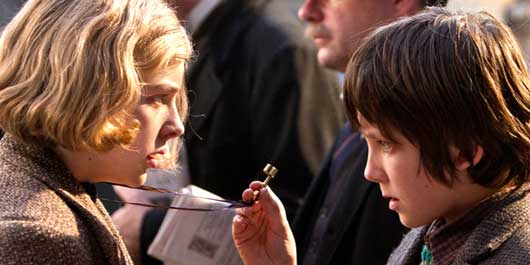
It’s always nice to see a director take a fresh angle in their career, especially when they have proved their quality time and time again with their tried and trusted genres and styles. In Martin Scorsese, we have one of the true modern masters. His grasp of the fundamentals of film making has produced movies that strike a beautiful balance between true-to-life realism and the gripping fantasy of a good story well told. Scorsese has, with such landmarks as Casino & Raging Bull, become so good at depicting the real world, warts and all, that a film like Hugo, filled as it is with dream-like settings and larger-than-life characters, represents a genuinely intriguing challenge for the old master.
Hugo is based on the the 2007 illustrated novel The Invention of Hugo Cabret, by Brian Selznick. In the 1930s, Hugo (Asa Butterfield), a recently orphaned young boy with a fascination with all things technology-based, lives with his drunken uncle in a Parisian railway station. All his free time is devoted to getting his father’s sole surviving possession, an humanoid robot, to work. With the help of the daughter of the local toy shop owner (Chloe Moretz) his work uncovers a sad story of lost genius.
Take a deep breath, because you’re about to read a sentence that you possibly never thought you’d see again after Avatar, but here it comes anyway, ok…deep breath…see this film in 3D. Shocking right? But shame on us for not having faith in Scorsese, for somehow, someway, he has taken this new medium and explored it to its full potential. Hugo does not fill its audience’s brain with 3D cliches of things popping out of the screen. Instead Scorsese actually uses the extra dimension to emotionally connect the audience to the characters on screen. It’s all very well presenting a film in 3D, but it seems Scorsese and his cast have somehow managed to perfect the art of performing in 3D as well and the results are pleasing to behold.
Scorsese is helped in this regard by a strong cast. Asa Butterfield is an unassuming but assured lead, and he and Chloe Moretz prove again that there is no excuse nowadays for Hollywood not to put in the effort and find child actors who are anything less than excellent. Veterans Sir Ben Kingsley, Richard Griffiths and Frances De La Tour provide expertise galore as a counterpoint to their fresher faced cohorts and the ever reliable Christopher Lee breaks his typecasting for once to play kindly old gent and bookstore owner Monsieur Labisse. It his, however, Sacha Baron Cohen who is the highlight of the piece. In playing Hugo’s nemesis, the uptight and pompous Station Master, Cohen captures a superbly rounded character, with the outward coating of a by-the-book monster concealing a beating heart within.
Hugo isn’t a perfect film by any means. What it gains in approachability and aesthetics, it loses somewhat in pacing and structure. The story sometimes seems like it wants to embrace its more fantastical elements but is held back by Scorsese’s and the writing’s need to hold on to more realistic elements of the story, and at certain points the film loses its normally solid A-to-B structure.
For the most part, however, Hugo is a charming adventure with plenty going for it. Scorsese is not the name most think off when they hear the words “family friendly”, but he has taken to this with the same panache and style that have singled out his older films.
Overall Verdict: A film with something for everyone, Hugo gets past the issues of a slightly meandering plot to deliver a highly satisfying slice of youthful adventure and great story-telling.
Reviewer: Alex Hall
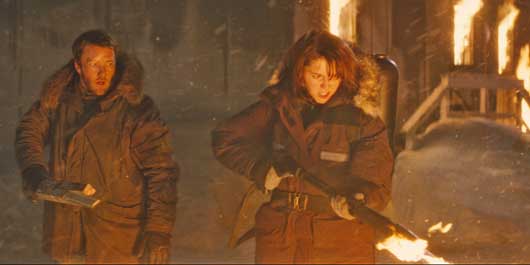

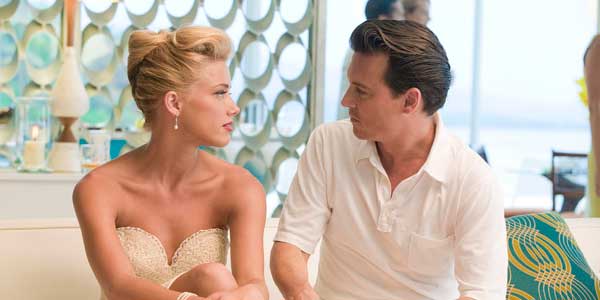
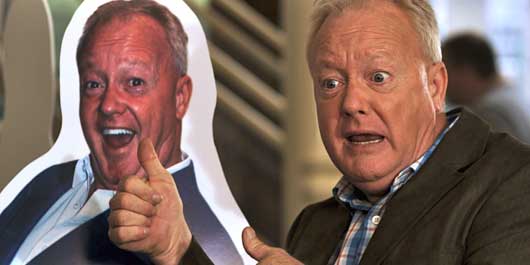
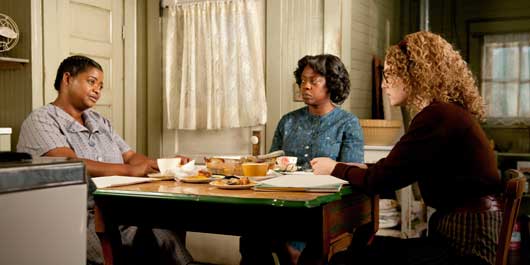
You must be logged in to post a comment.